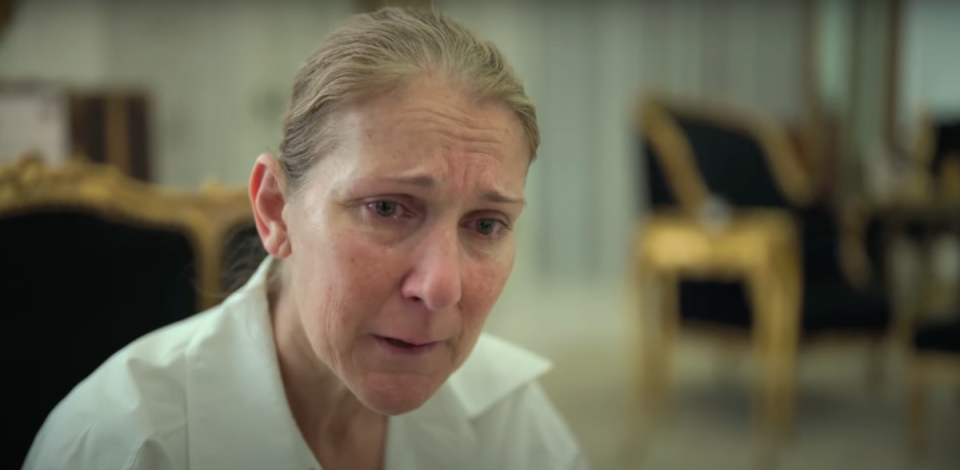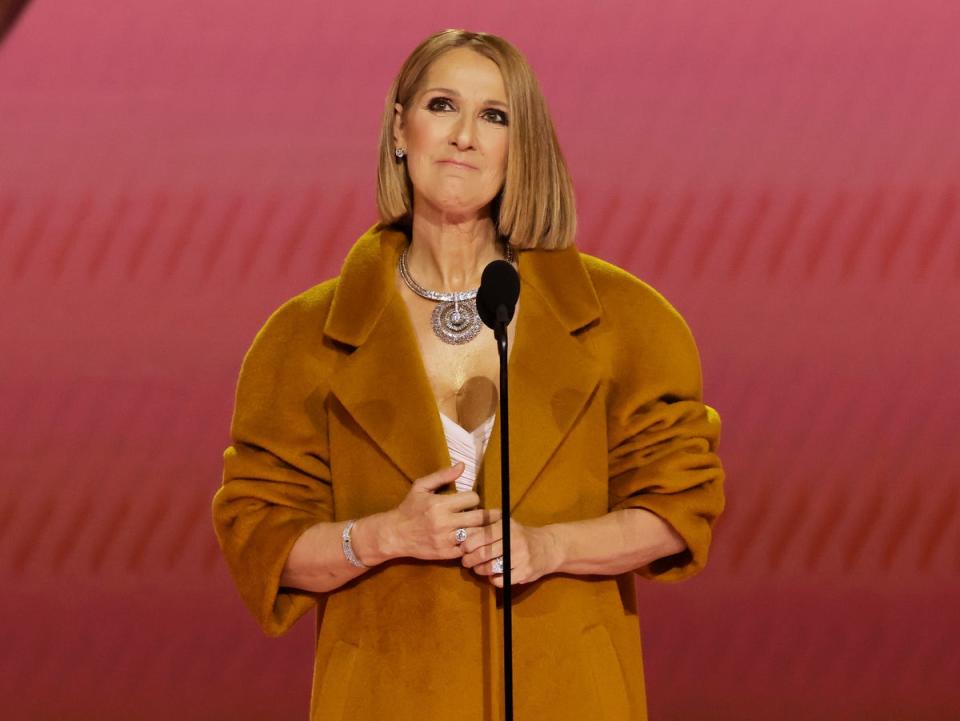Celine Dion explains how incurable condition affects her singing: ‘It’s like somebody is strangling you’
Celine Dion has revealed how her singing is affected by the spasms that occur as a result of her incurable condition, Stiff Person Syndrome.
In December 2022, Dion told fans that she had been diagnosed with Stiff Person Syndrome (SPS) – an autoimmune and neurological disorder that causes rigidity in the torso and limbs – and subsequently cancelled her world tour.
In a new interview, the 56-year-old Canadian singer said that when she tries to sing, it feels like someone is pushing on her larynx and pharynx, and that when she tries to make her voice higher or lower, she experiences spasms.
“It’s like someone is pushing on your pushing on your larynx [and] pharynx. So it’s like you’re talking like this,” she said, demonstrating a timid high-pitched speaking voice, “and you cannot go higher or lower”.
The main symptoms of SPS are rigidity in the torso and limbs, muscle stiffening and painful spasming. Periods of muscle spasming can be triggered differently between people, but environmental stimuli like loud noises, stress, touch, cold temperatures or performing certain exercises, could be trigger spasms in some people.
Dion explained that her spasms can occur unexpectedly, like when she’s cooking at home.
“It gets into a spasm,” she told NBC’s Hoda Kotb in a filmed interview. “It can also be in the abdominal, it can also be in my spine, in my ribs.”
“If I point my feet, they will stay [in the same position], or if I cook, because I love to cook, my hands will get in a position where you cannot unlock them.”
Dion revealed her spasms were so severe that she had a broken rib.

The “My Heart Will Go On” singer will pull back the curtain on living with Stiff Person Syndrome in her forthcoming documentary, I Am: Celine Dion, which will be released on 18 June.
In the first trailer for the film, Dion is seen sitting in a chair, looking into the camera as she says: “I have been diagnosed with a very rare neurological disorder.
“And I wasn’t ready to say anything before. But I’m ready now,” she adds, letting out a big sigh.
In between clips of her in physical therapy, she says: “I’m working hard every day. But I have to admit, it’s been a struggle.”

Breaking down into tears, she continues: “I miss it so much. The people. I miss them. If I can’t run, I’ll walk. If I can’t walk, I’ll crawl. And I won’t stop.”
The “It’s All Coming Back to Me” singer was forced to reschedule the European leg of her world tour following her diagnosis. She later announced the cancellation of the entire world tour in May 2023.
“I want you all to know I’m not giving up,” she wrote on Instagram at the time.

When asked in an interview last month if fans could expect to see her on tour again, Dion told Vogue: “I can’t answer that… Because for four years I’ve been saying to myself that I’m not going back, that I’m ready, that I’m not ready.
“As things stand, I can’t stand here and say to you: ‘Yes, in four months.’ I don’t know... My body will tell me,” she said. “On the other hand, I don’t just want to wait. It’s morally hard to live from day to day. I
Dion said on SPS awareness day in March that living with the condition has been one of the “hardest experiences” of her life.
“Trying to overcome this autoimmune disorder has been one of the hardest experiences of my life, but I remain determined to one day get back onto the stage and to live as normal of a life as possible,” she said on Instagram.
There is no cure for SPS, but there are ways for the disease to be treated, including through the use of muscle sedatives and relaxants. Physical and occupational therapy is also a treatment route for people with SPS.


